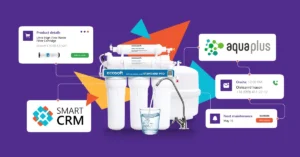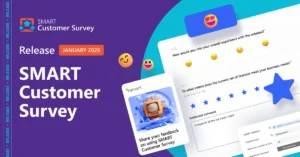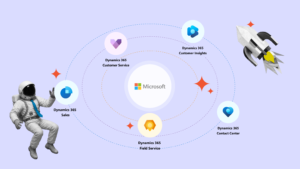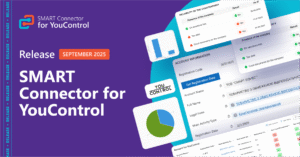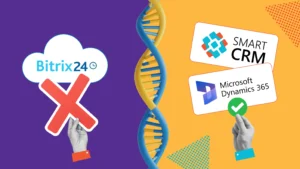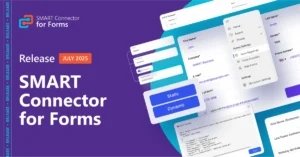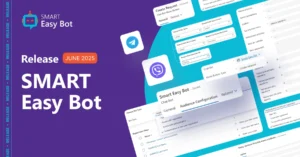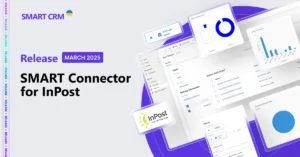Business “Builder”: How to Create an Effective CRM System and Improve Customer Service with Integrations

Let’s take most of the money we would have spent on paid advertising and put it back into customer experience. Then customers will become our marketing.
In the modern business sphere, CRM systems have become a common comprehensive tool for automating processes related to customer service and lead generation. However, progress does not stand still, competition is growing and the number of offers on the market is increasing, so software requires constant updating and adaptation to changing consumer preferences. The task of expanding the functionality of CRM systems is best solved by integrations with a wide range of functions.
Imagine that your CRM system is an air traffic control tower responsible for all interactions between the company and its customers. As in the situation with airspace management, it must collect data from various additional integrations. In business, this could be a solution for sales management, customer communications, analytics, or even user behavior forecasting. Just as a tower controls the movement of airplanes and processes information in real time, your CRM system should analyze all the data received and promptly adjust business processes. If the CRM allows you to integrate different solutions, then each of them works as an additional “system” on board the plane. For example, a sales forecasting module is an analogue of a meteorological system, helping to adjust your actions according to the “weather” on the market. Integration with email marketing can become a communication system that maintains uninterrupted communication with clients, and automated chatbots take on the role of an autopilot, independently controlling various aspects of customer support. Just as in aviation, the control tower analyzes information and adjusts routes for a safe flight, a CRM system with all connected apps provides your company with flexibility and readiness for change. This allows the business to avoid “aircraft disasters”: communication failures, loss of clients, and decreased efficiency. The system constantly “stays on course” and ensures that your company continuously moves forward towards success.
New market challenges: why is it important for a CRM system to be flexible for integration and customization?
The realities of today are constantly adjusting the course of business development. If a CRM system has scope for additional functionality and allows you to do this quickly and easily, it becomes a powerful tool for securing a stable position for your company in the changing international business arena.
Integrations in CRM systems provide the following benefits:
- Process automation: Over the past few years, the percentage of specialists working remotely in Europe has grown from 5-6% to 12%. In the United States, approximately 35% of employees who can work remotely began working from home permanently. At first, this was influenced by the pandemic and the political situation in the world, and then the trend continued to grow. Accordingly, organizations had to adapt to the new distribution of resources for human capital management, and process optimization became a priority. Integration with social networks for establishing business contacts, automation of communications, a single knowledge base for all specialists – all this helped companies adapt to the new working format.
- Changing the approach to customers: Due to the rapid development of technologies and high competition in the market, hyper-personalization and personalized communication with customers has become a trump card for many companies. It has become clear how important it is to pay attention to the emotional aspects of interaction and customer support. Integrations with chatbots in CRM marketing have made it possible to more effectively segment customers and set up more responsive and personalized campaigns in complex content management systems. Also, thanks to marketing automation and integrations with various Internet providers, automatic mailings, payment reminders, trigger communications, etc. have begun to be carried out more massively and in a personalized manner.
- Crisis Communication Management: In crisis situations, integrations in CRM systems can play a decisive role, helping companies quickly adjust their communication strategies. We are talking about integration with omnichannel platforms for quick notification of all stakeholders (customers, partners, suppliers or company employees), integration with analytics tools for tracking audience reactions to certain events or integration with chatbots for automation of some tasks during crises.
For example, at the beginning of the full-scale invasion of Ukraine, thanks to the flexibility of their own CRM systems, local companies were able to quickly adjust their communication channels to provide customers with information about changes in service, adapt marketing campaigns to the new reality, and interact with the team, even if some employees were forced to work remotely.
- Focus on customer loyalty and retention: Additional integrations for CRM systems help companies pay more attention to regular customers. In today’s reality, the focus is mainly shifting to loyalty programs, targeted cashbacks, and special offers for regular customers. Integrations with banking systems allow CRM systems to effectively manage financial relationships with the customers, increasing their level of trust due to strict adherence to security protocols.
- Support for charitable initiatives: With the beginning of the full-scale invasion, some companies began to use CRM to organize charity events and help the army. Integrations with local and international postal services made it easy to organize interaction with donors, track the implementation of humanitarian programs, and support volunteers.
Therefore, the importance of integrations in modern business is indisputable. Let’s investigate how such connectors are implemented based on the example of the SMART CRM platform.
Technological “threads”: how connectors work in CRM systems

Connectors act as a bridge between CRM and external systems, allowing data exchange in real time without the need to switch between unconsolidated platforms. Integration with connectors in CRM systems occurs through various technological approaches, each of which depends on specific tasks and platforms used. We suggest considering four main approaches to integration:
- Built-in or native integrations: These are usually ready-made connectors that are already built into the CRM ecosystem: ready-made out-of-the-box solutions. They allow you to easily connect CRM to other programs with minimal technical knowledge.
- Third-party and API integration: One of the most popular ways to integrate with external applications are API connectors, which provide data exchange between different systems. API (application programming interface) defines methods of interaction between program components, which allows you to quickly and efficiently build the necessary software. This method offers a high level of personal customization, but usually requires a lot of time and specific programming knowledge.
- Integration platforms: These are services that specifically help connect different systems. They allow you to combine data from different sources, including on-premises databases or cloud services. These platforms are often used for more complex integrations, such as combining CRM with ERP systems to more effectively manage enterprise resources. For example, Connect Bridge is commonly used to integrate with Microsoft Dynamics 365. The process involves installing the software, setting up a connection, and using SQL queries to interact with the CRM system. Data is transferred between systems via APIs or other protocols such as ODBC or JDBC. This allows for processing large volumes of data and ensures synchronization between different programs and databases.
- Custom integration: This is an approach for unique business requirements, where special code is developed to connect the CRM with other applications. Such integrations can be complex to maintain but provide maximum flexibility for a company’s specific processes.
Of all the above options, the most convenient for implementation will be a CRM system that supports integration with various out-of-the-box solutions and connectors: for example, the SMART CRM platform from SMART business. This is a comprehensive tool that can be fully integrated within 1-3 weeks. The SMART CRM platform offers four solutions – SMART Sales, SMART Customer Care, SMART Order Management and SMART Marketing – which makes this system relevant for almost any business area. The implementation of SMART CRM provides a wide range of benefits and opportunities, including:
“Construction Features”: What to look for when choosing integrations for a CRM system to get the best result
When choosing a CRM system and integrations for it, it is very important to determine what functionality will be relevant for your industry and how it can be adapted to the needs of the company. For example, IT companies will most likely need a flexible system with the ability to fully customize it, while for healthcare institutions it will be more important to get a simple system integrated with logistics applications and telephony.
For clarity, we will cite the case of Coca-Cola, which improved the quality of its marketing automation software with the Freestyle machine. This machine allows the client to create and customize their drink from scratch. The results of using the machine are transmitted through integrated applications to the Coca-Cola CRM system, which collects information about users and generates insights that help improve marketing strategies and maintain an effective sales funnel.
Another example of thoughtful customization of processes in CRM is the Activision studio. The company uses Internet providers and telephony integrations in CRM to monitor “fresh” customer reviews of their games on social media platforms. Thanks to this, developers can quickly solve problems that arise after releases. By focusing on customer service after the purchase of the game, Activision was able to increase customer satisfaction and reduce marketing costs by 25%.
For SOFTICO, which turned to SMART business, the integration of SMART Connector for Binotel was aimed at optimizing business processes and increasing the efficiency of working with clients through Microsoft Dynamics 365 Sales. This connector made it possible to automate the process of receiving and processing calls, as well as synchronize information about interactions with clients. And although SMART Connector for Binotel was connected just during the period of migration of business processes of the SOFTICO team from the old CRM system to Dynamics 365 Sales, the SMART business team made sure that the integration process was as comfortable and user-friendly as possible, which helped the company quickly adapt to changes. As a result, if we talk about numbers, in 2022 the company had 232 lost calls, and the average response time was 1 minute 32 seconds. However, since the implementation of the new CRM system and the connection of SMART Connector for Binotel – in 2023 and early 2024 – the number of lost calls decreased to 64, and the average response time was 25 seconds.
At the same time, the SMART CRM platform offers not only telephony connectors. Each company considering the implementation of this tool can assemble a “builder” of integrations relevant specifically to its needs. We suggest considering what functionality SMART CRM integrations can provide:
- Cooperation with local and international postal services: Connectors for Nova Poshta and Ukrposhta make it easy to integrate logistics services of postal services into Microsoft Dynamics 365 and SMART CRM. With this integration, companies can manage parcels, print waybills and registers directly from the CRM interface. SMART Connector provides analytical tools to optimize delivery times and uses ready-made templates for various types of parcels, which significantly simplifies operational processes. In addition to the above connectors, SMART CRM will soon offer integrations with other mailing services: InPost and DHL.
- Trigger and bulk mailing management: Connector for GMS and Connector for Infobip allow you to automate the management of SMS and Viber campaigns. This simplifies marketing, thanks to which a business can improve the quality of customer support, increase the effectiveness of marketing campaigns and better manage communication processes.
- Emailing management: Connector for eSputnik provides the ability to set up and send bulk and trigger emailing with analytics on the statuses and results of user reactions (for example, the number of interactions with the company’s contact information). This integration allows you to synchronize your contact base from SMART CRM and Dynamics 365 Sales. And synchronizing email templates and sending individual personalized emails to the client helps to build an individual approach to each user.
- Automation of financial processes: Connectors for PayPal, Przelewy24 and UAPAY (soon – Monopay) automate payment processes and improve customer service thanks to fast and secure transactions. These integrations allow you to automate the generation, creation, deletion or cancellation of a payment invoice directly from SMART CRM or Microsoft Dynamics 365 interface. The automatic sending of invoices for payment to the client and printing of invoices ensure user trust. And the analysis of the generated invoices on dashboards helps to constantly monitor the status of financial transactions in the company.
- Systematization of communication channels: Binotel, Ringostat and Stream Telecom telephony connectors automate the management of calls and messages received by the business. These integrations allow you to save and systematize conversation records, which helps analyze the quality of communications and avoid duplication of information. Thanks to individual user profiles and automation of marketing campaigns, the number of lost customers is reduced. These integrations also simplify the management of contacts and agreements, allowing you to work with different communication channels (telephony, messengers, chatbots) from one platform.
- Order management on the marketplace: The connector with Rozetka offers a number of technical solutions for automating work with orders and products. This integration allows businesses to automatically import and update product catalogs from the Rozetka platform to SMART CRM, including images, product descriptions, prices and stock quantities. The connector with Rozetka also offers fast and automated tracking of deliveries and feedback, which allows managers to quickly respond to any changes.
Other modules for expanding the capabilities of the platform include SMART Chat and SMART EasyBot. These solutions combine Facebook Messenger, Telegram, WhatsApp, Viber and Instagram chats in one window. This functionality allows you to optimize each subsequent interaction with the client, as well as build clear communication with partners and employees.
According to FiveCRM, CRM implementation on average contributes to an increase in customer retention by 27% and an improvement in their satisfaction in 74% of companies. Integrations in CRM systems provide businesses with flexibility to meet market needs and user requests, actively contributing to improving the quality of customer experience. And what could be more valuable for a company than a loyal ambassador who feels respected as a user?
Still in doubt or do not understand what integrations in a CRM system you need? Submit a request, and our experts will select the most relevant implementations for your business, effectively expanding the functionality of the “control tower” of your business.
